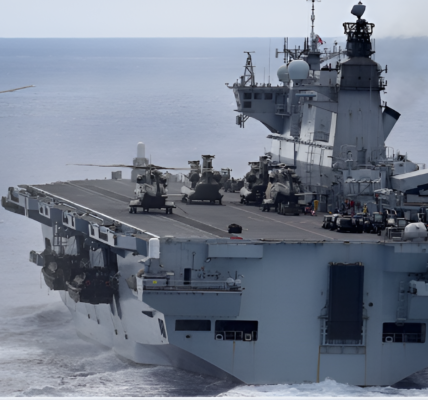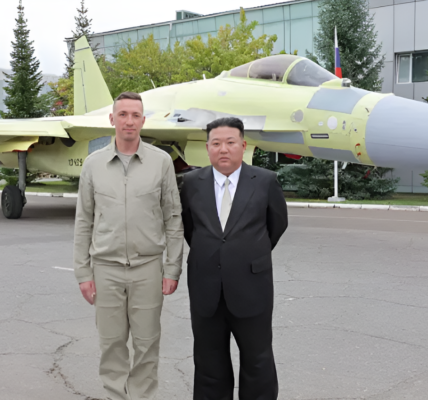Japan’s Role in a New Korean War: An Analysis of Strategic Cooperation and Military Contributions

As North Korea continues to expand its nuclear and missile capabilities, coupled with the growing threat of China’s potential invasion of Taiwan, East Asia’s security landscape is increasingly complex. The recent creation of the Trilateral Security Cooperation Framework, involving the United States, Japan, and South Korea, raises critical questions about regional responses to simultaneous conflicts, particularly on the Korean Peninsula and in the Taiwan Strait. While the specifics of the framework remain confidential, and its evolution into an Asia-Pacific NATO-like structure remains uncertain, it’s clear that the alliance’s strategies for dealing with regional crises must be adaptable.
Historically, East Asian security was ensured primarily through two bilateral defense pacts: the U.S.-South Korea Mutual Defense Treaty and the U.S.-Japan Security Treaty. These agreements were designed to protect South Korea from North Korean aggression and safeguard Japan from external threats, respectively. However, the lack of a formal military alliance between Japan and South Korea has often complicated their cooperation, especially in light of the ongoing historical disputes between the two nations. Despite this, a significant level of security collaboration has continued in the post-war era, especially in times of crisis.
The Korean War serves as a prime example of Japan’s indirect yet essential contributions to South Korean security. While Japan was not a formal combatant, it provided critical logistical support that facilitated U.N. operations on the Peninsula. This support included crucial transport services, industrial production, and military supplies, which were vital for the defense of South Korea.
Looking ahead to a potential second Korean War, Japan’s involvement would likely be more extensive. Although Japan would likely avoid direct combat due to political and legal constraints, its support role would be pivotal. Leveraging its advanced technological capabilities, Japan would focus on missile defense, maritime security, and providing logistical assistance to U.S. forces operating in the region.
Lessons from the Korean War
During the Korean War, Japan played a key logistical role. As North Korean forces advanced rapidly southward in June 1950, U.N. forces, particularly the United States, struggled with the distance and logistical challenges posed by the conflict. Japan’s proximity to the Korean Peninsula made it an indispensable base for U.N. operations. Japanese ports such as Yokohama, Kobe, and Kitakyushu were crucial for transporting military supplies and personnel. These ports, combined with Japan’s revitalized transportation infrastructure, allowed U.N. forces to stage and launch critical operations, including the successful Incheon landing.
In addition to transportation, Japan’s industrial capacity provided significant support. Japanese factories refurbished and repaired military vehicles, aircraft, and weapons, vital for sustaining U.N. operations. Minesweeping, another essential task, was handled by Japanese vessels, clearing the sea routes around key Korean ports to ensure the safe passage of military supplies. Though Japan did not deploy troops to the peninsula, its contributions were indispensable to the success of U.N. operations.
Japan’s Strategic Role in a New Korean War
In a second Korean War, Japan’s role would likely be multifaceted, focusing on several key areas where its capabilities align with the needs of U.S. and South Korean forces. The most significant of these would include missile defense, maritime security, and logistical support.
- Missile Defense: Given North Korea’s growing missile threats, Japan’s advanced Aegis-equipped destroyers and land-based interceptors would be critical in defending against missile strikes targeting U.S. and South Korean assets. Japan’s missile defense systems would act as a crucial line of defense, reducing the threat of a missile decoupling scenario, where North Korea could undermine U.S.-South Korean unity by threatening nuclear strikes.
- Maritime Security and Minesweeping: North Korea’s vast network of sea mines, which poses a threat to naval operations in the region, would require Japan’s Maritime Self-Defense Force to step in with its well-established minesweeping capabilities. Japanese ships and personnel would be tasked with clearing vital sea routes around the Korean Peninsula, ensuring that U.S. and allied forces could deploy reinforcements and supplies quickly and safely.
- Logistical Support: As seen in the Korean War, Japan’s logistical contributions would again be crucial in sustaining military operations. Japan’s well-developed infrastructure could provide key facilities for resupply operations, medical support, and the transport of personnel. Additionally, Japan would likely assist in the evacuation of non-combatants, including U.S. and allied civilians, from the war zone.
- Counterstrike and Proactive Defense: Japan is in the process of enhancing its counterstrike capability, including plans to acquire Tomahawk cruise missiles by 2027. In the event of a conflict, Japan could use these missiles to target North Korean missile launch sites or key military infrastructure, contributing to preemptive strikes against North Korean assets in conjunction with South Korea’s “kill chain” strategy.
- Protecting U.S. Assets: Japan’s military would also be responsible for protecting U.S. Maritime Prepositioning Ship Squadrons, which carry critical military supplies. Japan’s naval forces would play a key role in ensuring the rapid deployment of these assets to South Korea, maintaining U.S. operational capacity in the region.
- Humanitarian Assistance and Compliance Enforcement: Beyond its combat-related support, Japan would likely provide humanitarian aid during the crisis, including search and rescue operations and ensuring compliance with international sanctions on North Korea.
Challenges to Ground Force Involvement
Despite these capabilities, the chances of Japan deploying ground forces to South Korea remain low due to political sensitivities. South Korea has traditionally been resistant to allowing Japanese troops on its soil, a stance shaped by historical tensions. While certain extreme scenarios — such as the decimation of U.S.-South Korean forces in the initial stages of the war — could compel a reassessment, such a development would be politically fraught and highly unlikely.
Conclusion
In the event of a second Korean War, Japan would play a critical support role, providing missile defense, maritime security, minesweeping, logistical assistance, and potentially counterstrikes against North Korean military infrastructure. These contributions would far surpass Japan’s role during the Korean War, with the country’s evolving defense capabilities positioning it as a key player in a regional conflict. However, political sensitivities, particularly with regard to the presence of Japanese ground forces in South Korea, may limit Japan’s direct involvement. Strengthening the trilateral security cooperation between Japan, South Korea, and the United States will be crucial to addressing potential threats from North Korea and ensuring a united front in the face of an evolving geopolitical landscape.



